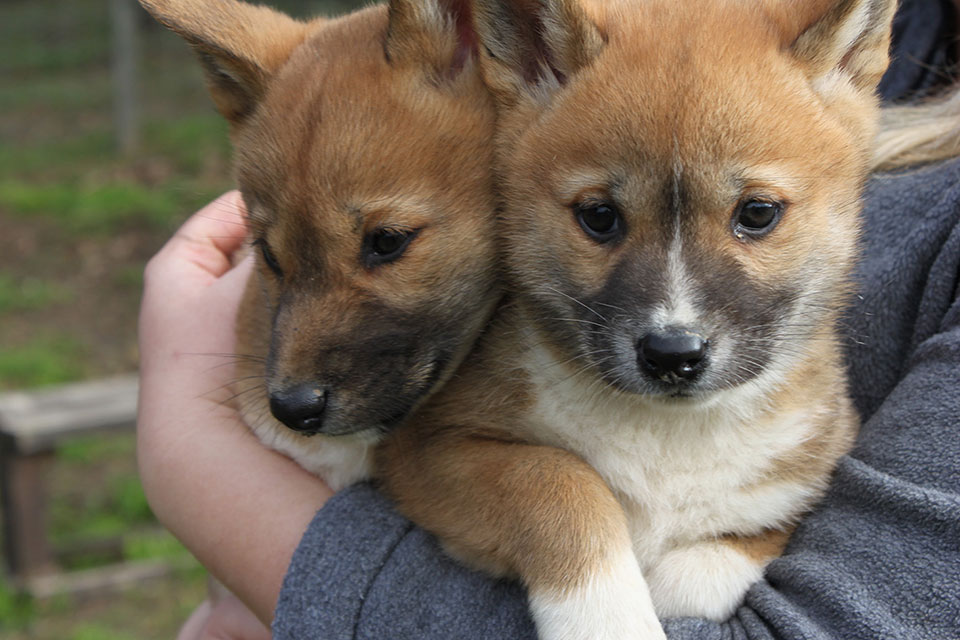
Lyn Watson has travelled the world as an all-breeds dog judge, but the canine that captured her heart as a child isn’t one you’ll see at shows.
“Dingoes are much more spiritual than dogs,” Lyn says. “When a dingo looks into your eyes they look into your soul. They can tell straightaway whether they can trust you or not.”
She recalls sneaking through gaps in the fence of the dingo enclosure at Healesville Sanctuary as a girl, mesmerised by the mysterious animals.
“I would just sit there for hours – I could watch them and no-one could see that I was there,” she says.
“That fascination never left me.”
It was this fascination that compelled Lyn and her late husband Peter to co-found the Dingo Discovery Centre and Sanctuary.
Set on 40 acres of rolling hills backing onto state forest, the sanctuary opened at Toolern Vale in 2001 and currently houses 35 DNA-tested pure-bred dingoes. That number will increase over winter as the females bear their litters.
The parents will rear the pups together, sharing responsibility for teaching their offspring the necessary skills to survive and thrive. This trait is just one of the things Lyn loves about her dingoes, who she hopes will survive long after she is gone.
She is passionate in her defence of Australia’s misunderstood predator and places responsibility for their endangered status squarely at the feet of the farming lobby and governments.
“Dingoes are the only native animal that is not protected,” she says, blinking away tears. “They are a natural pest controller but instead we treat them as the pest.”
Visiting the sanctuary is both an education and an unforgettable experience. Lyn and her volunteers share their knowledge freely, pointing out the animals’ special characteristics. The dingoes themselves are friendly and curious, their wolf-like howls a truly memorable greeting.
During July and August there are open days every weekend. Visitors meet the exuberant and playful dingo pups and go home as passionate advocates for a beloved Australian animal.
“Once you’ve met a dingo you’ll always love them,” Lyn says.
She still judges “ordinary” dogs as time permits but concentrates on her beloved dingoes as she knows her conservation work and research has the capacity to make a difference to the species’ survival.
“It makes me feel useful.”
The Australian Dingo Sanctuary is open for tours by appointment. Open days will run on Saturdays and Sundays at 11am and 2pm from July 7 until the end of August. Bookings are essential. The sanctuary also welcomes dingo sponsors and volunteers. Phone 5428 1245 or visit www.dingofoundation.org